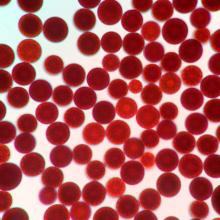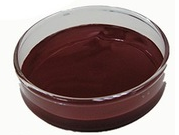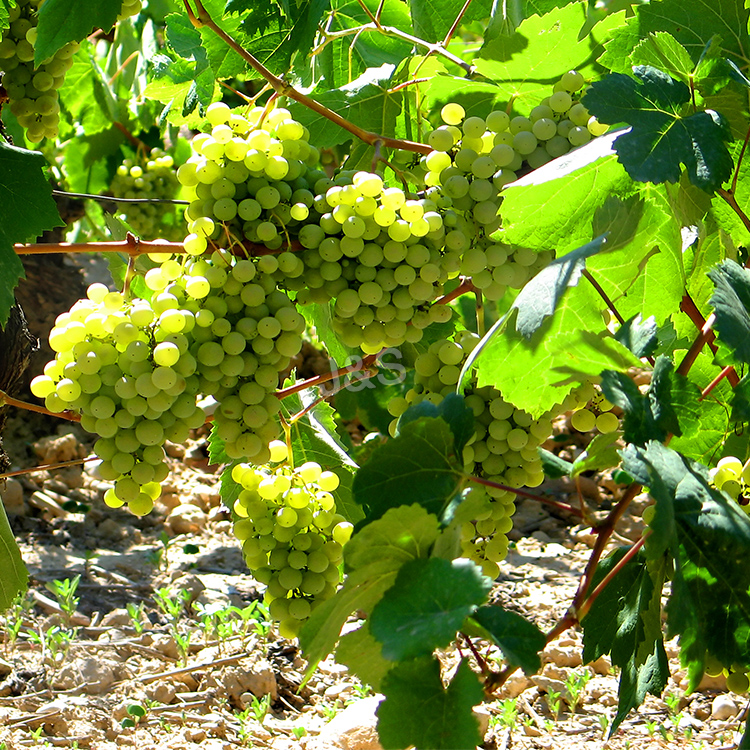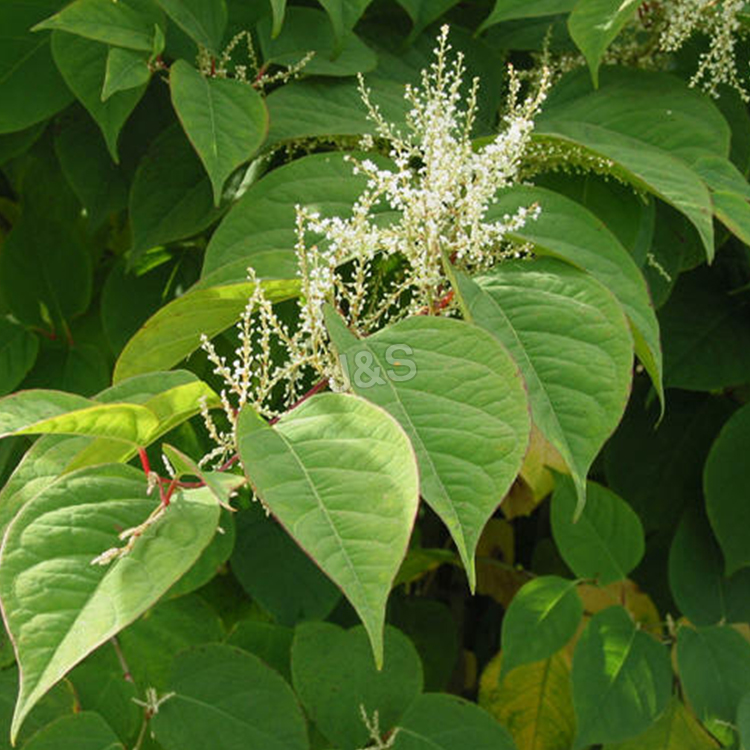High Definition For Astaxanthin Factory for Bogota
High Definition For Astaxanthin Factory for Bogota Detail:
[Latin Name] Haematococcus Pluvialis
[Plant Source] from China
[Specifications]1% 2% 3% 5%
[Appearance] Dark red Powder
[Particle size] 80 Mesh
[Loss on drying] ≤5.0%
[Heavy Metal] ≤10PPM
[Storage] Store in cool & dry area, keep away from the direct light and heat.
[Shelf life] 24 Months
[Package] Packed in paper-drums and two plastic-bags inside.
[Net weight] 25kgs/drum
Brief Introduction
Astaxanthin is a natural nutritional component, it can be found as a food supplement. The supplement is intended for human, animal, and aquaculture consumption.
Astaxanthin is a carotenoid. It belongs to a larger class of phytochemicals known as terpenes, which are built from five carbon precursors; isopentenyl diphosphate and dimethylallyl diphosphate . Astaxanthin is classified as a xanthophyll (originally derived from a word meaning “yellow leaves” since yellow plant leaf pigments were the first recognized of the xanthophyll family of carotenoids), but currently employed to describe carotenoid compounds that have oxygen-containing moities, hydroxyl or ketone , such as zeaxanthin and canthaxanthin. Indeed, astaxanthin is a metabolite of zeaxanthin and/or canthaxanthin, containing both hydroxyl and ketone functional groups. Like many carotenoids, astaxanthin is a colorful, lipid-soluble pigment. This colour is due to the extended chain of conjugated (alternating double and single) double bonds at the centre of the compound. This chain of conjugated double bonds is also responsible for the antioxidant function of astaxanthin (as well as other carotenoids) as it results in a region of decentralized electrons that can be donated to reduce a reactive oxidizing molecule.
Function:
1.Astaxanthin is a powerful antioxidant and may protect against oxidative damage to body tissues.
2.Astaxanthin can improve the immune response by increasing the number of antibody producing cells.
3.Astaxanthin is a potential candidate to treat neurodegenerative disease such as Alzhimer and Parkinson diease.
4.Astaxanthin dan reduce UVA-light damage to skin such as sunburn, inflammation, ageing and skin cancer.
Application
1.When applied in pharmaceutical field, astaxanthin powder has the good function of antineoplastic;
2.When applied in health food field, astaxanthin powder is used as food additives for pigment and health care;
3.When applied in cosmetic field, astaxanthin powder has the good function of antioxidant and anti-aging;
4.When applied in animal feeds field, astaxanthin powder is used as animal feed additive to impart coloration, including farm-raised salmon and egg yolks.
Product detail pictures:

Related Product Guide:
Our objective is to present premium quality products at aggressive prices, and top-notch services to buyers around the world. We have been ISO9001, CE, and GS certified and strictly adhere to their excellent specifications for High Definition For Astaxanthin Factory for Bogota , The product will supply to all over the world, such as: Paraguay, Tajikistan, Algeria, Our aim is to help customers realize their goals. We are making great efforts to achieve this win-win situation and sincerely welcome you to join us. In a word, when you choose us, you choose a perfect life. Welcome to visit our factory and welcome your order! For further inquiries, please do not hesitate to contact us.
This herb is found in sub-Himalayan forests of India, Burma, and several other countries. A short crooked tree with persistent fruit in the cold season: common in all forests, frequently found in villages and worshipped by the Hindus during Dasara festival.
According to Ayurvedic traditions, Gokshura is a wonderful healing plant with a broad range of properties, recently becoming very popular in Western herbalism under the common name “Puncture Vine” and the abbreviated latin name Tribulus, where it is used for its demonstrated ability to increase Luteal Hormone in men and women, leading to increased testosterone.
Herb of the Month
Gokshura
Latin name : Tribulus terrestris
Family : Zygophyllaceae
Common Name : Land caltrops, Puncture vine, Gokhru
Description :
This herb is found in sub-Himalayan forests of India, Burma, and several other countries. A short crooked tree with persistent fruit in the cold season: common in all forests, frequently found in villages and worshipped by the Hindus during Dasara festival.
According to Ayurvedic traditions, Gokshura is a wonderful healing plant with a broad range of properties, recently becoming very popular in Western herbalism under the common name “Puncture Vine” and the abbreviated latin name Tribulus, where it is used for its demonstrated ability to increase Luteal Hormone in men and women, leading to increased testosterone.
Part Used : Whole plant, Seeds
Healing power and curative properties:
Tribulus is used to treat kidney, bladder, urinary tract and uro-genital related conditions, where it acts as a diuretic and lithotriptic, and helps flush out kidney or gallbladder stones, gleet, venereal diseases including gonorrhea, phosphaturia, chronic cystitis, dysuria, painful urination, edema, nephritis, hematuria, gout, diabetes, and incontinence of urine.
Gall bladder & Urinary disorder :
The bark is astringent, tonic and anthelmintic. It is useful in Gallbladder disorders. Gokshura is one of Ayurveda’s best herbs for the kidneys. It is effective in most urinary tract disorders because it promotes the flow of urine, cools and soothes the membranes of the urinary tract and helps remove stones. It stops bleeding and nourishes and strengthens the kidneys and reproductive organs.
Sexual disorder :
Tribulus Terrestris has been used since ancient times for different ailments of the male sexual system. It is used in the Ayurvedic medicines. It is used as an ingredient of different products that are made to increase the sexual drive in men. It helps to enhance the energy and boost your vitality to make you feel strong and healthy. It helps to increase the libido and sexual drive in men. Gokshura is a valuable product of the Ayurvedic medicines and is used as a sex booster.
Tribulus Terrestris gives energy to the body cells and tissues and it also acts as an aphrodisiac. It increases the sexual power in men. It stimulates the release of male sex hormones that helps in increasing the sexual drive and also provides energy to perform sex efficiently with full vigor and energy. Gokshura is also given for male impotency caused due to low sperm count or poor quality of the sperms.
An ideal formulation of 100% extract of all major herbs documented for hepato protective action. Bhumiamla inhibits DNA polymerase of Hepatitis B virus essential for its reproduction. Kalmegh, Katuka, Bhringraj, Punarnava, Sarpankha etc. are known to prevent changes induced by toxins like CCI4 and restore liver function fast.
Indications : Anorexia, Viral Hepatitis, Drug induced Liver damage, Alcohol induced Liver damage, Chronic Liver disorders.
Dosage for Vasuliv Syrup :
Children : 1 teaspoonful of Vasuliv Syrup 3 times a day.
Adults : 2 teaspoonful of Vasuliv Syrup 3 times a day or as directed by physician.
Website : https://www.emporiumonnet.com/beauty_health/vasu_pharma/vasuliv-syrup.html
The company leader recept us warmly, through a meticulous and thorough discussion, we signed a purchase order. Hope to cooperate smoothly







